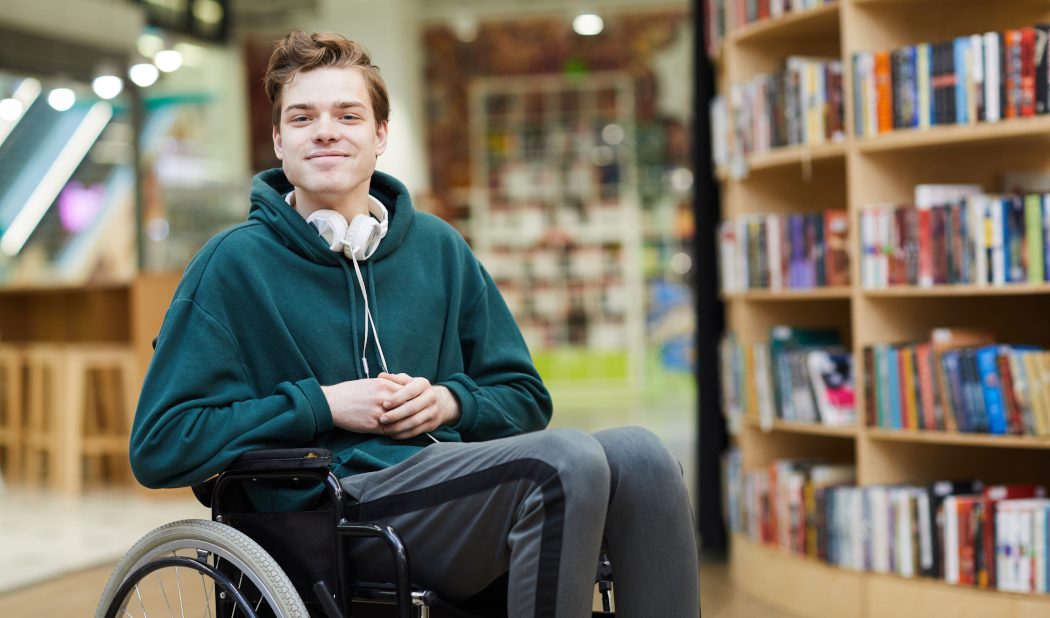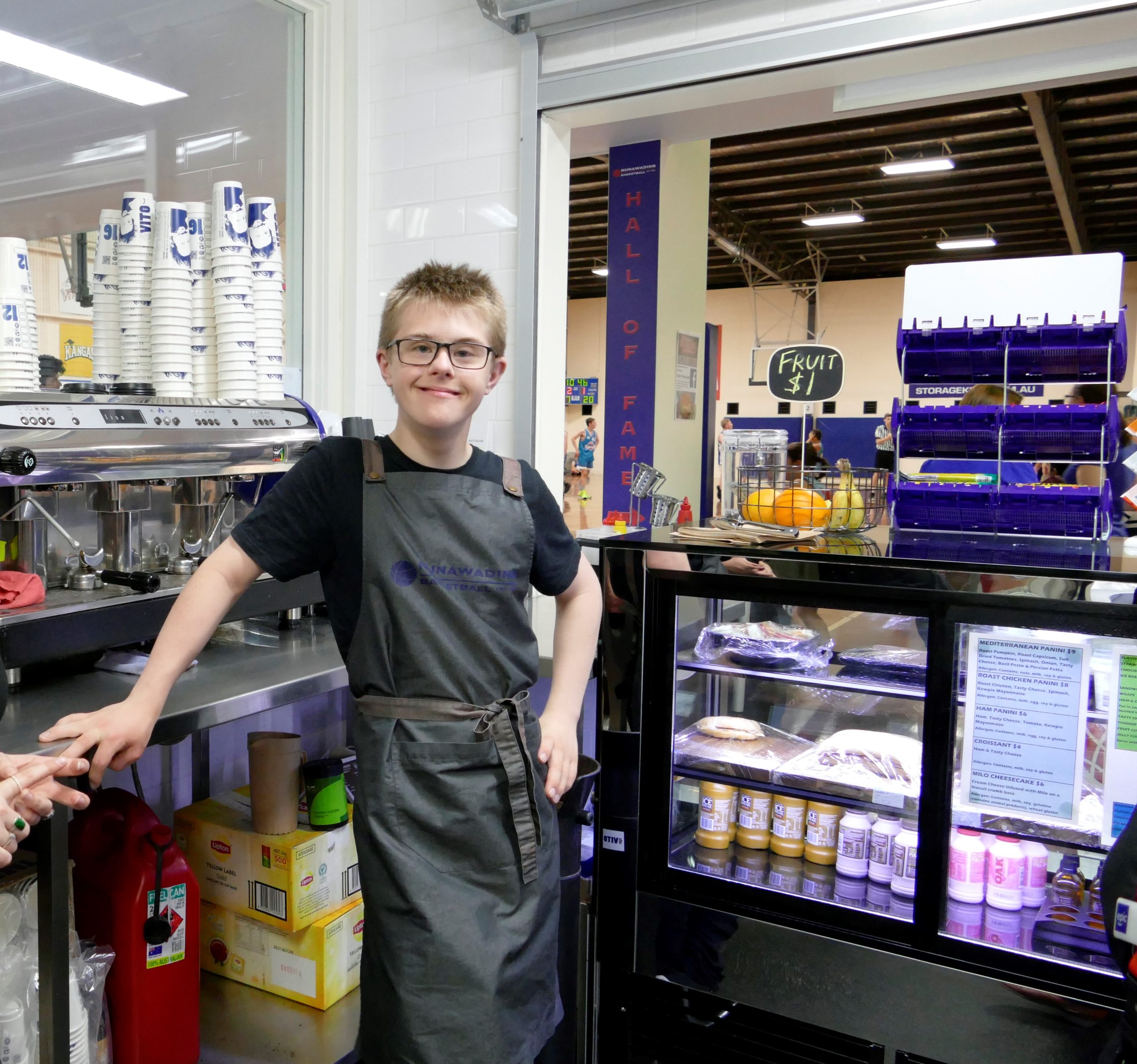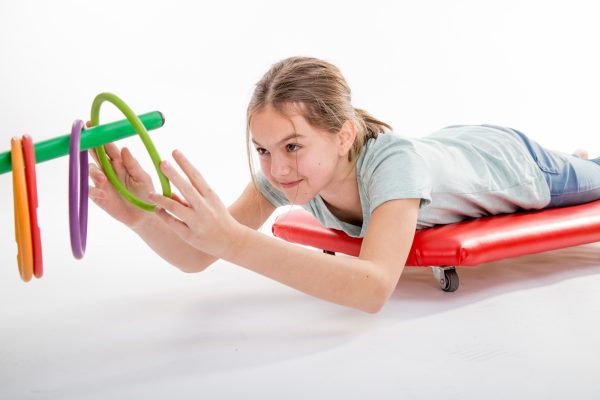
Kick start a young person with disability’s career journey
Young people with disability have the right to work in real jobs for real wages.
Getting a job is about more than earning money.Young people with disability often gain confidence and independence plus social connections and choices available to other people in Australia through a job placement.
Families have an important role to play in supporting your child to develop a clear and optimistic vision for their future. Research shows that family participation in career planning increases the likelihood of getting a good job. The key is to focus on your child’s strengths and aspirations, make a plan and work with your allies to make it happen.
Start early
What happens in school is key to the long-term work and social participation of people with disability.
Starting early gives you time to assist your child in discovering their interests, and developing the skills that can prepare them for work. Keep an open mind when exploring things they would like to try and discussing what they might want from their future, before working out how they might get there!
You can find this out by exploring questions like:
- What environment do they thrive in?
- What are they passionate about?
- What can they contribute?
- What are their talents?
- How are they supported to be their best?
Build them up with high expectations
Having the belief that your child can and will work when they leave school makes a huge difference. When you communicate these expectations from an early
age, your child will follow your lead. Surrounding your child with positive influences who assume their employability will reinforce these expectations.
Expand their imagination with work tours and placements
We all have blind spots in the world of work. Do you know what your friends actually do with their day when they go to the office or depot?
As early as primary school, you can point out what jobs you see people doing in your surroundings. Ask your child what they’d like or dislike about doing that job.
When they are in secondary school, having work experience and after school jobs are key to improving their expectation of themselves, and their ability to get work in the future.

Research has shown that young people who have meaningful work experiences in line with their aspirations, talents and abilities can dramatically increase their chances of employment after school.
Use your informal networks, whether it’s close friends and family, or acquaintances like local shops or community organisations to find supporters and opportunities for work experience and after school jobs.
Let them – and yourself – sit in the ‘learning zone’
It’s normal to want to protect your child.
Don’t let that make you say no to every idea or possibility. There is dignity in taking a risk. What if it does work out?
There’s a happy medium between your ‘comfort zone’ and your ‘danger zone’. It’s the learning zone, and it’s where change happens.
Develop skills at home
Giving your child responsibilities that teach and build skills can also translate into workplace skills in the future. Chores around the home and extracurricular activities give them responsibilities and allows them to practice work skills.
This will also give your child a better understanding of their disability and help them describe what adaptations they might need in future.
The ‘work readiness’ trap
Make sure your support network understands your child’s aspirations and strengths and shares your expectations of their employability.
Often young people with disability fall into the ‘Work Readiness Trap’ where they get stuck ‘preparing’ for an opportunity or building employment readiness skills in a market that disadvantages them.
In this situation, there’s a heightened focus on a young person’s barriers, often accompanied by a belief that they are not truly capable of working because of their disability.
Rather than getting them ready for work, this can result in pushing the young person into non-mainstream activities, placeholder qualifications, volunteer work unrelated to their goals, or stuck preparing for the traditional labour market where they’re expected to appear non-disabled. We don’t need to fix our children, we need to fix the workplace.
Every job description was designed at some point – so why not create a job that your child can do?
Role customisation is a person-centred approach to employment, where a job is tailored to the strengths of a person with disability, while still meeting the needs of the business.
Instead of focusing on minimising a young person’s disability in the traditional labour market, we can focus on creating customised opportunities, related to their capabilities and interests.


Take Sarah, for example. After she completed work experience placements in retail and social services, Sarah realised that she wanted a job where she could
help people. Now Sarah works four days a week at her local hospital in a role that was specifically designed to maximise her skills and abilities. Her job involves a range
of tasks including assembling induction packages and greeting new staff. In doing so, Sarah has helped reduce the workload of the entire HR department and her colleagues are able to focus their attention on their areas of specialisation. “I love my job, I love that I can help everyone and that I am part of the team” said Sarah.
What can schools do?
Schools can implement evidence-based practices that improve the chances of young people with disability.
Our Inclusive Career Development benchmarking tool is informed by research and designed to support mainstream and specialist schools to enhance their career development practices for young people with disabilities.
You can find the tool and other resources for schools on our website tickettowork.org.au/resources/schools
It takes a village to raise a child – and to keep the economy running
We get the best results when we work together. Schools, employers, employment service providers, supportive families, and your local community.
We are working to create lasting, systemic change so young people with disability can successfully transition from education into secure, meaningful employment.
To do this, the culture of low expectations must be addressed, evidence- based practices must be implemented and system-level issues that result in young people with disability falling through the cracks must be fixed.
Who we are
The National Collaboration on Employment and Disability (NCED)is evolving the work of ‘Ticket to Work’ to play a national leadership role that supports collaboration and capability building across disability and mainstream education, training, and employment services so that young people with disability can successfully transition from education into decent, secure, and meaningful work.
Our pilot project, Inclusive Pathways to Employment, is finding ways to do this in mainstream employment services at four locations across metro and regional Australia.
The NCED is enabled by social justice organisation The Brotherhood of St. Laurence, and funded by The Paul Ramsey Foundation and The Ian Potter Foundation.
Find interactive resources at www.tickettowork.org.au







